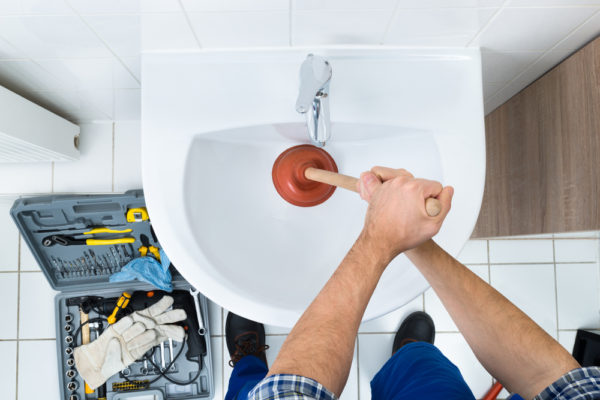
Dealing with blocked drains is something that no homeowner wants to have to deal with. What goes down your drains has a huge impact on how well they work at removing wastewater away from your home. You need to ensure that you take good care of your drains to ensure that they don’t get blocked up and cause more issues down the line. Clogged drains can lead to a whole host of plumbing issues so it is best to prevent it from happening in the first place if at all possible.
Blocked drains in Melbourne can be unpleasant to unclog, depending on what has gone down the drain. To avoid messy cleanups, it’s good to have an understanding of what can and can’t go down your drains. If you know what to avoid putting down your drain, you will have fewer issues with your plumbing going forward. This means less expensive visits from the plumber and a plumbing system that you can rely on to perform as expected.
Let’s take a look at just some of the things that can and can’t go down your drains to ensure that you don’t cause any unnecessary damage to your pipes.
Bleach
Bleach has the potential to be harmful to your plumbing as it can mix with other chemicals left in your pipes. However, generally speaking, you can put bleach down the drains as long as you are connected to the mains water supply. On the other hand, if you are connected to a private septic tank, adding bleach to the mix can have a negative impact on the ecosystem of your septic tank and cause you further issues.
Fat And Grease
Fat or grease, in any form, should never be flushed down the drain. When fat and grease cool, they harden and over time the residual fat in your pipes can cause blockages. Remember that even if it is in liquid form going down the drain, it does not mean it will remain in liquid form in your pipes. Be sure to dispose of fat and grease in another way and not throw it down your drain to ensure your plumbing stays healthy.
Dry Ice
Dry ice is becoming more popular with home cooks across the country. However, many people don’t fully understand the dangers of dry ice and how to handle it correctly. Dry ice can be harmful to your health in any confined space. If you pour dry ice down your drains, the extremely cold temperature can damage the lining of your pipes, causing damage to your plumbing. Instead of pouring dry ice down the drain, allow it to sit in an area with plenty of ventilation until it has evaporated entirely.
Cooking Oil
Cooking oil is fat and should never be put down your drains. When the oil cools, it can harden and cause damage to your plumbing and result in your drain becoming backed up. Oil in your pipes can also cause your drains to smell, which is never pleasant, especially where you are preparing food. Dispose of oil by allowing it to cool and harden, wrapping it in paper and putting it in the general waste.
Look After Your Drains To Avoid Plumbing Problems In The Future
Your drains are an essential element of your home’s plumbing system and you need to ensure that you look after them. If you suspect that your drains may be blocked or you notice a strange smell coming from your drains, be sure to call a plumber to investigate further. Being proactive with your drain care will ensure that they continue to operate efficiently going forward and that you don’t have any plumbing problems down the line from putting the wrong things in your drain.



This excellent website really has all of the information and facts I wanted about this subject and didn’t know who to
ask.